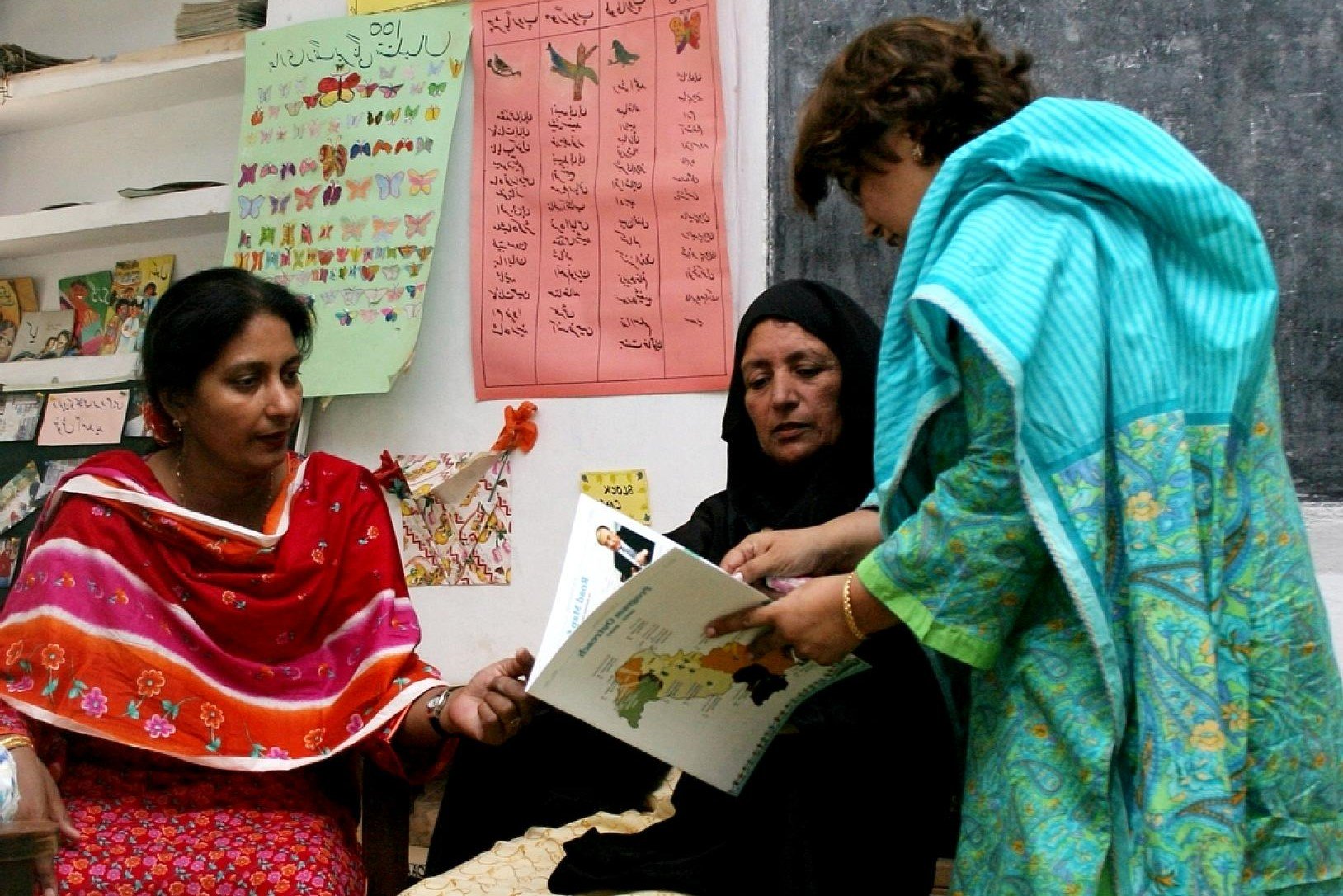
INFORMATION AND ACCOUNTABILITY
Given that education in Pakistan is a dynamic marketplace in which parents (both urban and rural) choose between public and multiple private schools, information regarding the quality of education being offered by each of these institutions becomes key in allowing the ecosystem to function efficiently. While in the private sector parents can pressure schools into improving their quality based on information, in the public sector citizens need to use strategies to hold policymakers accountable to achieve change in public schools.
Read the Summaries or Take a Deeper Dive
Parental Perceptions and Schooling
Image: U.S. Agency for International Development
This study investigates the accuracy and predictive power of parental perceptions. We examine how these perceptions change over time, and if parents are willing to update their perceptions when new information is provided.
-
Do parents have accurate perceptions of their child’s ability from a young age?
Are these perceptions predictive of later life outcomes?
Are parents willing to update their perceptions upon receiving new information?
-
Parental perceptions are highly correlated with their child’s test scores, even at a young age.
These perceptions are very predictive of later life outcomes, specifically years of completed schooling and probability of attending college.
Parental Political Engagement and Public Service Delivery
Image: U.S. Agency for International Development
Using the lens of public schooling in Punjab, Pakistan, this project studies the effectiveness of different types of citizen participation in improving educational outcomes in public schools.
-
Are demands that citizens make of government actors (bureaucrats and elected politicians) regarding their schools met? And are these demands improving learning outcomes?
Following our intervention, do citizens raise their issues with government actors, and does participating in the intervention increase their political knowledge, trust in government, and sense of efficacy?
-
Citizens are effective monitors of school performance. Women particularly monitor school quality through communication with their children.
Policy actors in Pakistan – both bureaucrats and politicians – are keen to at least portray that they are communicating with citizens regularly.
Citizens face multiple barriers to engaging with government representatives including: lack of awareness of and familiarity with existing political and bureaucratic structures, collective action issues, and fear of retaliation.
Providing Information in School Report Cards
Image: Evidence for Policy Design
Better information could allow parents to choose schools based on their quality (and price) and in turn, schools could invest in quality enhancements knowing that they will be recognized and rewarded. Thus, information has the power to create a demand for quality from parents, to which schools respond.
-
How can information asymmetries between parents and schools in the education market be alleviated?
What are the impacts of improving parents’ access to information on their child’s learning and the relative performance of schools?
-
Treatment villages saw average student test scores increase by about 42% more than control villages.
Private schools lowered their fees by an average of 17% in treatment relative to control villages.
The worst-performing schools were more likely to shut down in treatment villages, with their students shifting into alternative schooling options.
Long-Term Effects of Report Cards
Image: Visual News Associates, World Bank
This study looks at the effects of the school report cards intervention 8 years later, to determine if the strong effects observed in the years following the intervention are sustained after a whole new cohort of kids have entered the schools, and why.
-
Are the results of the report cards intervention sustained over time?
What are the channels through which fixing information failures can generate sustainable and sustained change ?
-
8 years after the intervention addressing information failure, children test scores are still significantly better in both public and private schools of treatment villages.
8 years after the intervention, private school fees are still significantly lower in treatment villages.
These sustained results seem to be mostly driven by changes in the schools production function, namely in the form of better teacher selection and retention in the treatment schools.




